Production of space
-
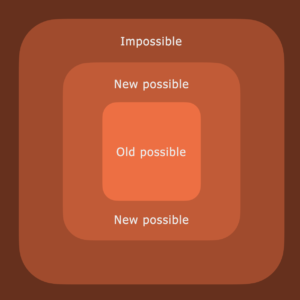
Designing between the possible and the impossible
Abstract: The possible is relatively constituted to what is meant to be impossible. Whenever someone does something formerly known to be impossible, the possible expands, and a new frontier appears. Expanding this box is not trivial, though. Contradictions binding the dos and don’ts demotivate any naïve attempt to design at the border. Expansive design is […] - Oct 21, 2023 -
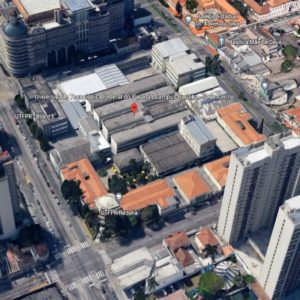
UTFPR Curitiba master plan (2022)
UTFPR Curitiba formed its first Campus Master Plan Committee in 2022 to plan its future spatial developments. The campus has three localities. Seeking for broader adoption, the committee adopted a participatory design approach. The entire university community will be invited to collaborate in the planning process through various activities and methodologies. The goal is to […] - Dec 13, 2022 -
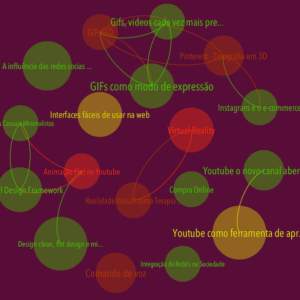 Graphs are mathematical structures that relate a sequence of entities that share an abstract connection between them. The connections are expressed through edges (links) that connect the related entities (nodes). Graphs are mostly used to find similar entities of different kinds through common linking patterns. Graph visualization is a common technique employed by social network […] - Feb 2, 2022
Graphs are mathematical structures that relate a sequence of entities that share an abstract connection between them. The connections are expressed through edges (links) that connect the related entities (nodes). Graphs are mostly used to find similar entities of different kinds through common linking patterns. Graph visualization is a common technique employed by social network […] - Feb 2, 2022 -
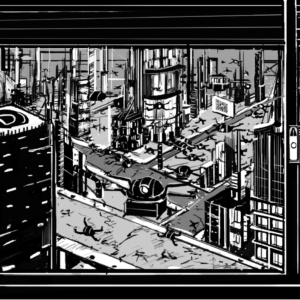 Rhythmanalysis is a method developed by Henri Lefebvre and Catherine Regulier to grasp the rhythms of everyday life in urban space through an embodied and historicized approach. The researcher uses her/his/their body to feel, sense, and join the rhythm while developing critical consciousness of its historical origins. Speculative Rhythmanalysis Speculative Rhythmanalysis is a derived method […] - Feb 2, 2022
Rhythmanalysis is a method developed by Henri Lefebvre and Catherine Regulier to grasp the rhythms of everyday life in urban space through an embodied and historicized approach. The researcher uses her/his/their body to feel, sense, and join the rhythm while developing critical consciousness of its historical origins. Speculative Rhythmanalysis Speculative Rhythmanalysis is a derived method […] - Feb 2, 2022 -
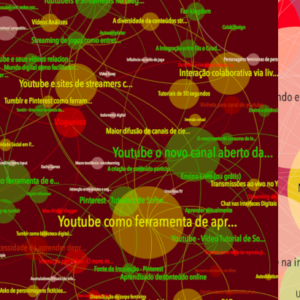
Conservatism in Digital Trends: Findings from a differentialist analysis of influence graphs
Van Amstel, Frederivan Amstel, F. M. C. (2021). Conservatism in Digital Trends: Findings from a differentialist analysis of influence graphs. InfoDesign – Revista Brasileira De Design Da Informação, 18(2), 37-52. https://doi.org/10.51358/id.v18i2.933 - Jul 31, 2021 -
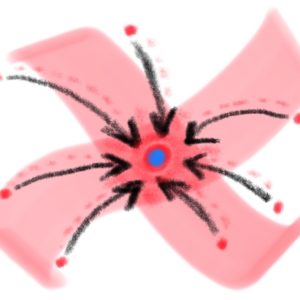
Decolonizing whatever-centered design
Centralization is a spatial practice used by human collectives for thousands of years. It started in the archaic definition of village leaders and evolved to world empires, including their corollary transnational companies. Centralization promises to better organize society through the gathering of resources and information generated in a vast territory in a small space: the […] - Jan 19, 2021 -
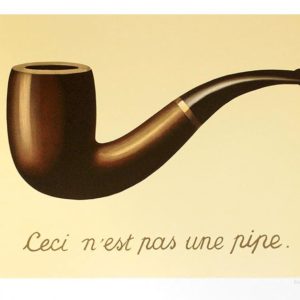
What is a contradiction and why it is relevant to design research?
Design research is increasingly concerned with being part of change processes in everyday life, in communities, in organizations, and in large-scale sociotechnical systems. Despite the growing interest, the field is not prepared to deal with this topic. The predominant theories in design research were crafted to understand individuals interacting with products, or groups of people […] - Apr 21, 2020 -
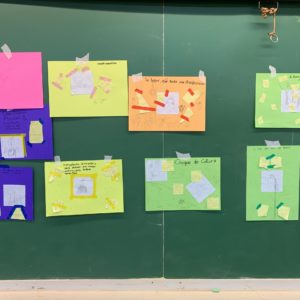 30 hours – Graphic Design — UTFPR Creativity is not a personal trait of a genius but a social activity that can be perfected through practice. The basic premise of this course was featured in a news item on TV Paraná Turismo. The TV news report conveys that creativity is not an innate talent reserved for […] - Mar 28, 2020
30 hours – Graphic Design — UTFPR Creativity is not a personal trait of a genius but a social activity that can be perfected through practice. The basic premise of this course was featured in a news item on TV Paraná Turismo. The TV news report conveys that creativity is not an innate talent reserved for […] - Mar 28, 2020 -
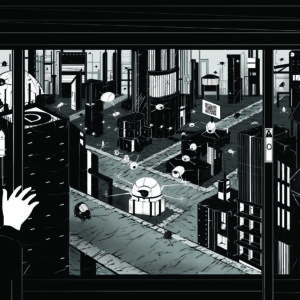
Every breath you take: Captured movements in the hyperconnected city
Firmino, R; Van Amstel, F.M.C; Gonzatto, R. F. (2018). Every breath you take: Captured movements in the hyperconnected city. In: Christoph Lindner and Miriam Meissner, The Routledge Companion to Urban Imaginaries. Routledge, London. DOI: https://doi.org/10.4324/9781315163956-14 - Oct 21, 2018 -
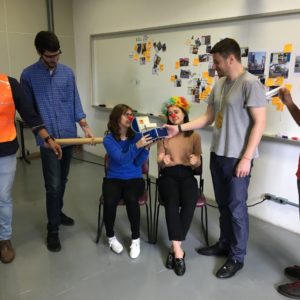 Cities and Technologies is a 30 hours graduate course from the Urban Management program from PUCPR. The course was delivered by professors Rodrigo Firmino, Fabio Duarte, Rodrigo Gonzatto, and Frederick van Amstel. After reading and discussing various articles from the field of Science, Technology, and Society (STS), the students engaged in three workshops led by […] - Apr 28, 2018
Cities and Technologies is a 30 hours graduate course from the Urban Management program from PUCPR. The course was delivered by professors Rodrigo Firmino, Fabio Duarte, Rodrigo Gonzatto, and Frederick van Amstel. After reading and discussing various articles from the field of Science, Technology, and Society (STS), the students engaged in three workshops led by […] - Apr 28, 2018 -
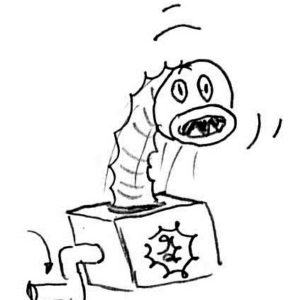 I have developed for my Design Thinking course a comprehensive explanation on how design can be part of big transformations in society. Instead of making changes to society, as in the paradigm of “social impact”, I teach my students to discover transformations already in course, understand them, and support them. The concept of contradiction is key to my approach: a unite […] - Oct 28, 2016
I have developed for my Design Thinking course a comprehensive explanation on how design can be part of big transformations in society. Instead of making changes to society, as in the paradigm of “social impact”, I teach my students to discover transformations already in course, understand them, and support them. The concept of contradiction is key to my approach: a unite […] - Oct 28, 2016 -
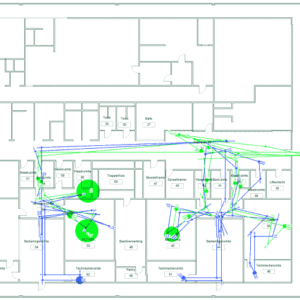
The social production of design space
Van Amstel, F.M.C; Hartmann, T; Voort, M. van der and Dewulf, G.P.M.R. The social production of design space, Design Studies, 46, 2016, p. 199–225. DOI: https://doi.org/10.1016/j.destud.2016.06.002 - May 2, 2016 -
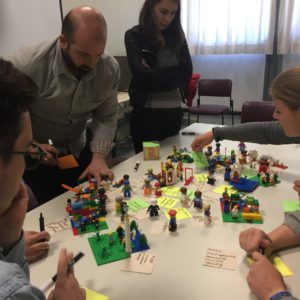
Smart Urban Mobility Lab (2016-2018)
The Smart Urban Mobility Lab (SUM-LAB) is an initiative by two local universities – the Pontifical Catholic University of Paraná (PUCPR) and the Federal University of Technology Paraná (UTFPR) – and the University of Twente with the support of the City of Curitiba. Researchers from the partners will work together in the SUM-LAB to formulate the […] - Apr 20, 2016 -
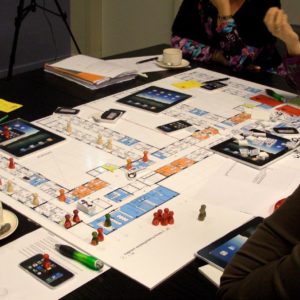
The Transformative Potential of Game Spatiality in Service Design
Van Amstel, Frederick M.C. and Garde, Julia. Games to explore the possibilities of space and the space of possibilities in service design. Simulation & Gaming, 47 (5), 2016, p. 628-650. https://doi.org/10.1177/1046878116635921 - Mar 4, 2016 -
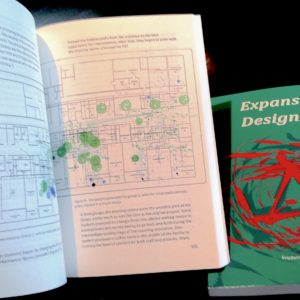
PhD thesis – Expansive design: designing with contradictions
A quick guide to this thesis: Abstract: This thesis looks at the practice of design as it emerges in architectural design and service design. The lens adopted considers design both as an activity as well as a space full of contradictions, which are accumulated tensions. Design activity is a professional occupation that interacts with other […] - Dec 14, 2015 -
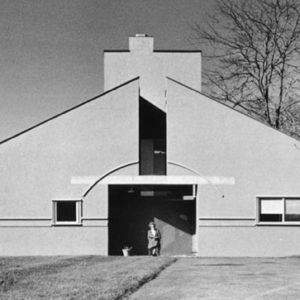
Representing contradictions without trying to solve them
Design-oriented ethnography seeks to find opportunities for innovation in social activities. Disturbances, tensions, and conflicts are sometimes used to ground or justify these opportunities, as if they could be avoided by an innovation. Ethnographers know that social contradictions cannot be resolved by design since they depend on collective endeavors; however, they still need to provide […] - Nov 20, 2015 -
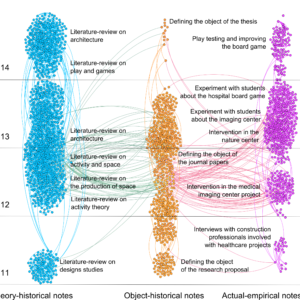
Regressive-progressive historical analysis
The Expansive Design thesis was crafted on the historical analysis methods used in Cultural Historical Activity Theory (Engeström) and Production of Space Theory (Lefebvre). This page explains in detail how data was collected and analyzed. The open data is publicly available for browsing. Historical analysis in the production of space is called regressive-progressive (Lefebvre, 1991; […] - Aug 11, 2015 -
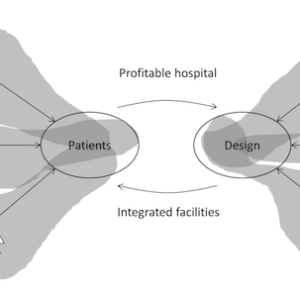 The boundaries between humans and collective association of humans are one of the most dynamic resources for work and development. Nature generated physical affordances that hinder human movement, but humans barely ever accept them. Humans open pathways through jungles, build bridges across rivers, and fly over the ocean. Nevertheless, humans draw their own boundaries too […] - Jul 18, 2015
The boundaries between humans and collective association of humans are one of the most dynamic resources for work and development. Nature generated physical affordances that hinder human movement, but humans barely ever accept them. Humans open pathways through jungles, build bridges across rivers, and fly over the ocean. Nevertheless, humans draw their own boundaries too […] - Jul 18, 2015 -

The homogenization of differences
The competition for exchange value has shaped the space of capitalist societies. In order to compete in the global market, the land, the cities, and the homes are becoming more alike across the world. People are trying to use space in similar ways due to the possibility of surviving from exchanges in the global market. This phenomenon […] - Jul 17, 2015 -
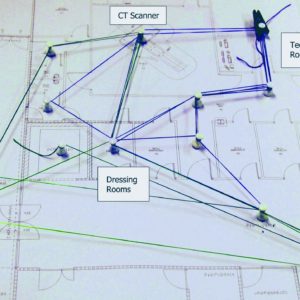
Expanding the representation of user activities
Van Amstel, F. M.C., Zerjav, V., Hartmann, T., van der Voort, M. C., & Dewulf, G. P. (2015). Expanding the representation of user activities. Building Research & Information, 43(2), 1-16. DOI: https://doi.org/10.1080/09613218.2014.932621 - Jul 15, 2014 -
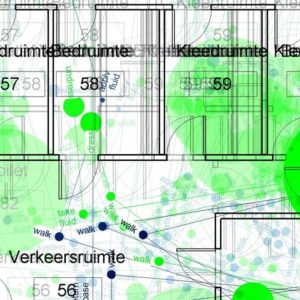
Contradictions in the design space
van Amstel, F., Zerjav, V., Hartmann, T., van der Voort, M., and Dewulf, G. (2014) Contradictions in the design space, in Lim, Y., Niedderer, K., Redström, J., Stolterman, E. and Valtonen, A. (eds.), Design’s Big Debates – DRS International Conference 2014, 16-19 June, Umeå, Sweden. https://dl.designresearchsociety.org/drs-conference-papers/drs2014/researchpapers/99 - Feb 17, 2014 -
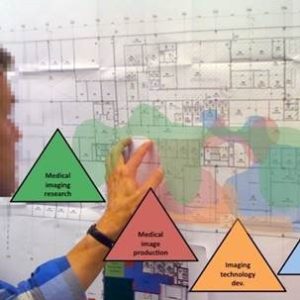
Grounding the flying triangle: activity theory and the production of space
Amstel, F.M.C. van; Hartmann, T; Voort, M. van der; Dewulf, G.P.M.R. (2014) Grounding the flying triangle: activity theory and the production of space. In: Proceedings of the European Group for Organizational Studies Colloquium, Rotterdam. - Feb 14, 2014